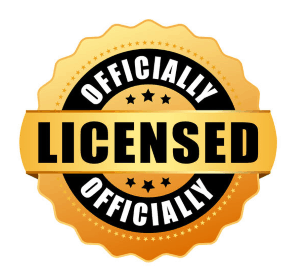 When you’re considering product licensing, there are some fundamental issues you need to address.
When you’re considering product licensing, there are some fundamental issues you need to address.
As a preliminary matter, you need to determine if you’re really wanting to license a product, a trademark, or both?
Product Licensing Versus Trademark Licensing
Product licensing means one party (the “licensor) is licensing its product to another party (the “licensee”) to use or sell to others.
As a hypothetical example, The Coca-Cola Company* could license its cola soda to a licensee in another country to manufacture, distribute as a wholesaler, and/or sell at retail.
The cola would be the product being licensed. This type of product could be private labeled under licensee’s own brand name for the soft drink.
Related Article: Licensing Agreements – How To License Products In 3 Easy Steps
However, the company could also license its brand Coca-Cola® for the licensee to brand the soda. This would be trademark licensing.
In many cases, a prospective licensee only wants to license the trademark, not the product. For example, a manufacturer of stuffed polar bear toys might license the right to add a red hat with white script letters that read “Coca-Cola” to each toy bear. In this case, it’s the trademark being licensed (Coca-Cola® brand), not the product (toy polar bears with hats).
Scope of License
Whether you’re licensing product, trademark, or both, the scope of the license is important.
For example, if you want to only license a mark and don’t want a competitor to place the same mark on its similar product, you’ll want to negotiate an exclusive license to use the brand for that kind of product. Of course, you’ll likely to pay a higher licensing fee for such exclusivity.
On the flip side, if you’re the licensor, you’ll want to limit the scope of the license as much as possible so that you retain the ability to license the mark to others for additional revenues when it makes sense to do so. The terms and conditions that trigger license revocability are also important.
Where To Get A Product License Agreement
If you’re dealing with a large corporation as licensor, chances are they have boilerplate take-it-or-leave-it product licensing agreements that heavily favor the licensor. You will have little or no room to negotiate any of the terms and conditions except perhaps price and how long the license will last.
On the other hand, if you’re dealing with a small or medium-size company as licensor, it makes sense to have an experienced business contracts attorney prepare the license agreement with terms and conditions that are favorable to you.
Similarly, if you’re just starting out licensing your products or marks to others, a reputable business transactions attorney can prepare licensing agreements that are customized to favor you as the licensor.
* References to the marks of The Coca-Cola Company are made solely for educational purposes using hypothetical examples. No relationship exists between this law firm and the company. No claims are made with respect to the marks owned by the company, including but not limited to, the terms and conditions (if any) the company may license its products or brands to third parties.
